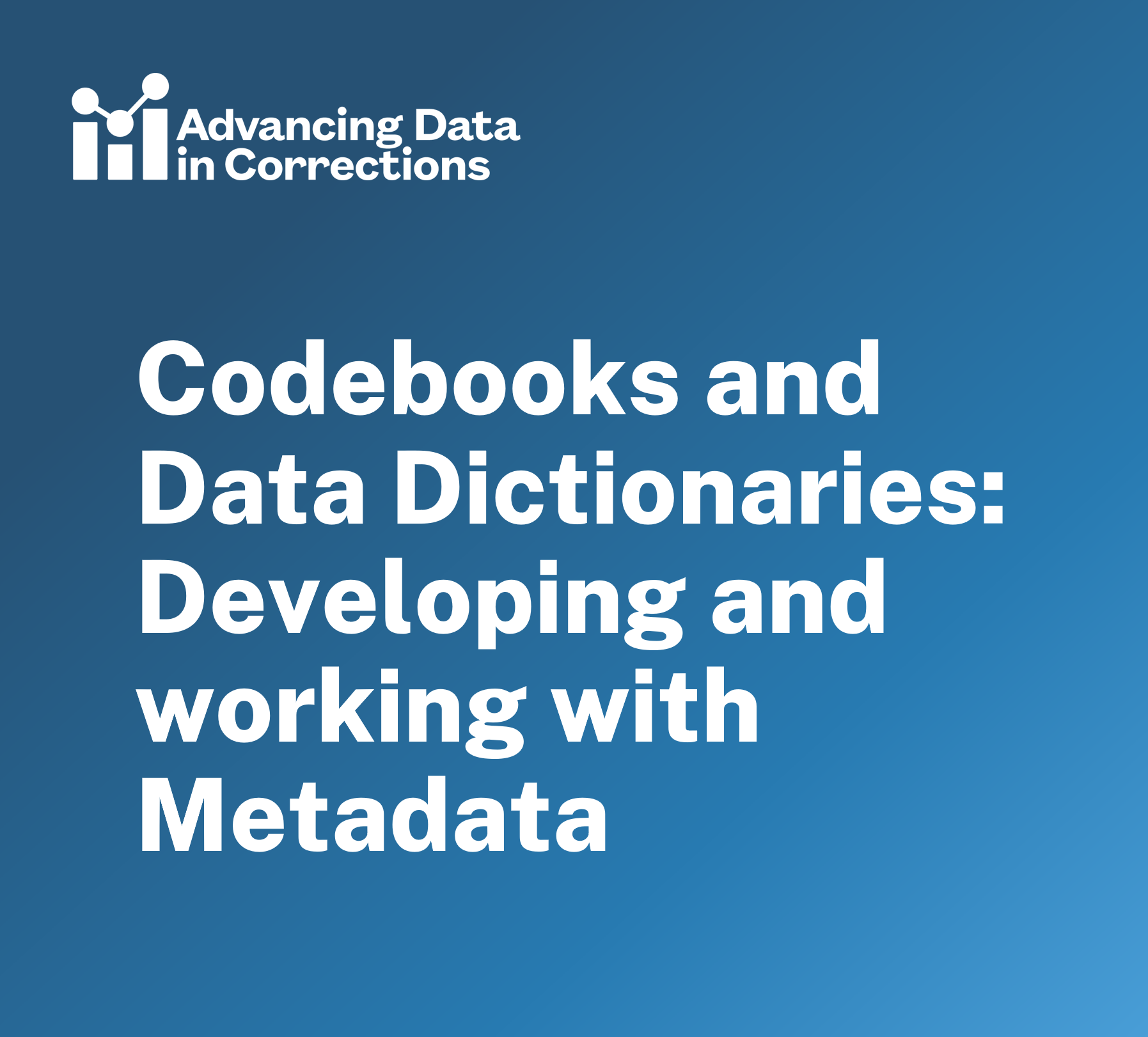Description
Metadata is essential in documenting, organizing, and maximizing the utility of data. This course focuses on the creation, organization, and use of metadata, particularly codebooks and data dictionaries. It introduces key concepts for managing metadata documentation and highlights the value of documenting data to facilitate data analysis, improve data quality, and enhance communication with internal and external stakeholders.
Learners will develop an understanding of effective metadata, explore structural elements of codebooks and data dictionaries, and develop the skills to assess existing documentation and design codebooks and data dictionaries for their agency or organization. By the end of this course, learners will be equipped to design, implement, and manage metadata effectively to foster greater efficiency and accuracy in their data analysis.
Intended Audience
This course is designed for professionals responsible for collecting, managing, and analyzing administrative data in corrections. It is ideal for researchers and analysts looking to enhance their skills in data management; data quality and analysis, with a focus on improving data organization; and metadata documentation. Learners should have a foundational understanding of data handling and be familiar with statistical tools, as well as understand their organization’s data collection and reporting processes.
Learning Objectives
After completing this course, learners should be able to do the following:
- Define and explain the purpose of codebooks, data dictionaries, and metadata.
- Describe how codebooks improve data quality and support accurate data analysis.
- Explain the importance of documenting variables, values, and definitions in codebooks.
- Develop and maintain codebooks for datasets in a correctional context.
- Implement strategies to maintain codebooks over time.
Structure
The course is organized into lessons that are meant to be completed in sequential order. Each lesson includes a video introducing the topic for that lesson, examples of the information being presented, and a learning check to ensure you understand the information before moving on to another lesson.
| Lesson |
Lesson Objectives |
| 1: Introduction to Codebooks, Data Dictionaries, and Metadata |
- Explain the importance of documenting data and its impact on analysis.
- Understand the basics of metadata.
- Define codebooks and data dictionaries.
|
| 2: Key Components of Codebooks and Data Dictionaries |
- List and describe different types and key elements of metadata.
- Explain the importance of documenting variables, values, and definitions in codebooks.
|
| 3: Metadata in Context |
- Examine real-world examples of metadata in corrections context.
|
| 4: Creating Codebooks for Corrections Data |
- Identify tools needed to create a codebook or data dictionary.
- Develop a codebook for datasets in a corrections context.
|
| 5: Maintaining and Updating Codebooks |
- Assess codebooks and data dictionaries for completeness and clarity.
- Develop strategies to maintain metadata over time.
|
Resources
Tools for Creating Metadata Records
Data Management Resources
Estimated Time to Complete
2 hours






